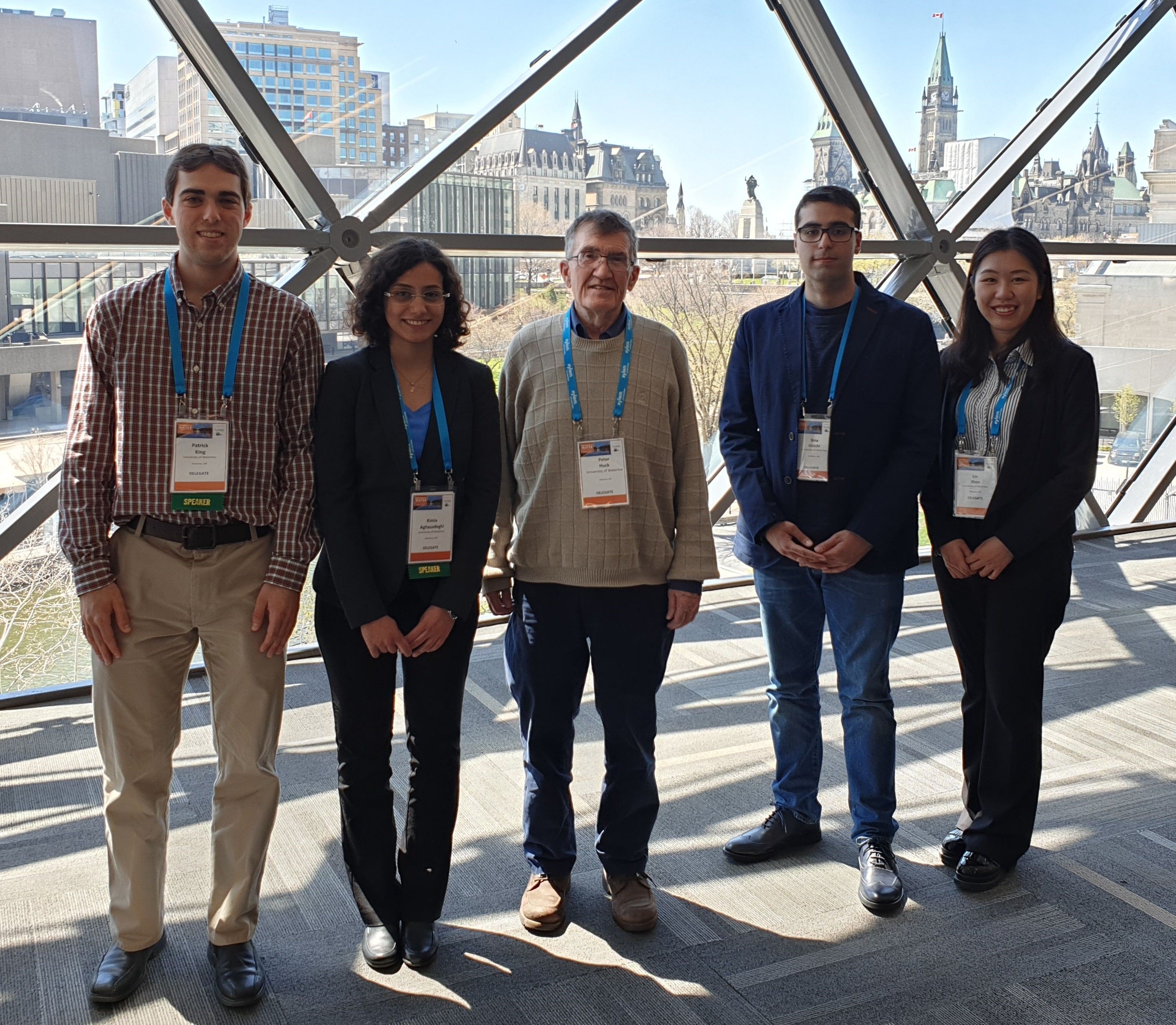
The NSERC Chair group attended the 2019 Ontario’s Water Conference & Trade Show in May. This year the conference was held at Ottawa Shaw Centre in Ottawa, Ontario (May 6th to May 8th). Chair members delivered four oral presentations and one poster presentation at this conference. See below for titles and short abstracts of the presentations:
Climate Change Session
Peter Huck, M. Van Dyke, S. Peldszus. Developing Robust Responses for Treatment Plants in the Face of Extreme Raw Water Quality Degradations.
For municipalities using surface water, several types of events can trigger extreme raw water quality changes. For example extreme weather, upstream spills and blooms of cyanobacteria could overwhelm a treatment plant. To be robust, operators need to be prepared with operational responses that can be implemented on very short notice.
University Research Session
Patrick King (MASc. candidate), S. Peldszus, K. Aghasadeghi, G. Gagnon, P.M. Huck. Impact of pH, DIC, Hardness, and NOM on the Galvanic Corrosion of Lead.
A series of dump and fill experiments using lead pipes with a galvanic connection to copper pipes were completed in order to assess the impact of pH, dissolved inorganic carbon (DIC), hardness, and natural organic matter (NOM) on lead release. A result of interest is the evaluation of the impact of DIC and hardness separately.
Distribution Session
Kimia Aghasadeghi, B. Trueman, S. Peldszus, D. Chisholm, P. Beaulieu, G. Gagnon, P.M. Huck. Pilot-Scale Investigation of Silicate-Based Inhibitors for Lead Corrosion Control.
Limited information is available on the effectiveness and optimum operating conditions of silicate-based inhibitors for corrosion control. A pilot study using excavated lead service lines was undertaken to investigate the efficacy of silicate-based inhibitors for reducing lead release into drinking water and compare its performance to other corrosion control strategies.
Treatment Session
Michele Van Dyke, S. Peldszus, P.M. Huck, K. Led, A. Evans, J. Carter, C. Russell, B. Ma, R. Hozalski, B. Mitch, Z. Zhang. Investigating Factors that Affect Potential NDMA Precursor Formation Through Biological Filtration.
N-nitrosodimethylamine (NDMA) is an important disinfection by-product in treated drinking water, and biofiltration can result in either an increase or a decrease in NDMA precursors, depending on the plant. A study was done to better understand how source water, pre-treatment and operating conditions affect potential NDMA precursor formation through biofiltration.
Poster Gallery
Lin Shen (MASc. candidate), M. Van Dyke, S. Peldszus, P.M. Huck. Performance of Template Assisted Crystallization (TAC) for Drinking Water Scale Prevention.
Template assisted crystallization (TAC) is a salt-free scale prevention technology which could be a potential alternative to ion exchange. TAC units form hardness microcrystals and thereby prevent scaling. In order to test TAC units, free calcium ion reduction and scale formation were measured using two source waters.